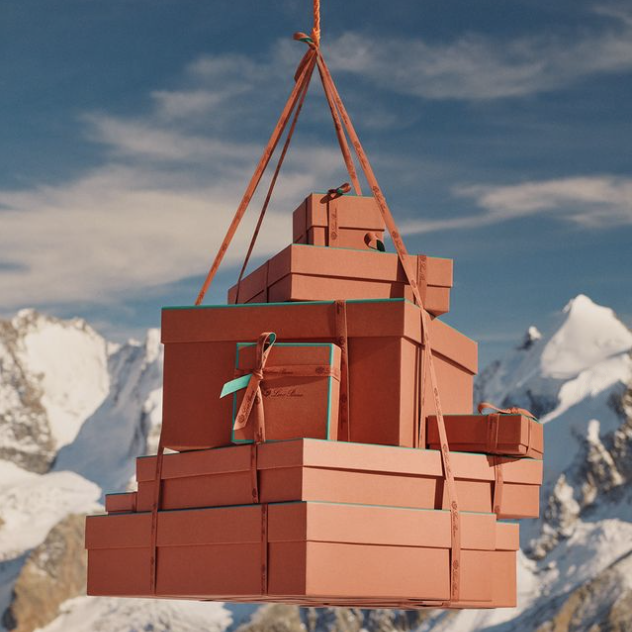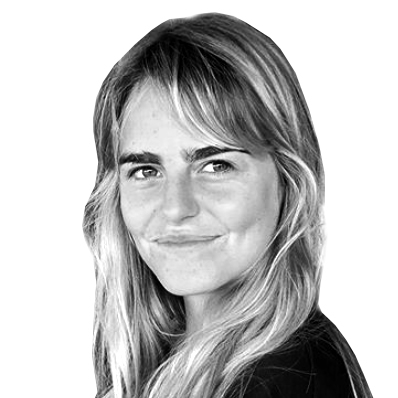No fantasy-fulfillment lunch at a palazzo in Tuscany is complete without a bottle of Sassicaia, a full couture outfit, and a local princess sitting across the table, serving you a plate of gnocchi. That is, unless you stay at the Rocco Forte in Florence afterward, and then fly home on a private plane.
But while the wine, the jet, and the luxury hotel are obtainable, provided you have the money, the castle and the princess are usually not for sale. For Tanya McQuoid, the ill-fated American heiress on the White Lotus TV series, a suite at the five-star San Domenico Palace hotel paled in comparison with a weekend at a palace in Palermo with her fabulous newfound friends (“the gays,” to the initiated). Any of her rich acquaintances could go to Europe and book a room at the San Domenico, but it’s likely that none had stayed at a palazzo before.
Enter luxury brands, which have the connections, the resources, and the incentive to make the McQuoid fantasy happen. Where an influencer or a lower-tier very important client (V.I.C.) might get a Christmas card or an invitation to that season’s fashion show, top-tier V.I.C.’s are increasingly receiving all-expenses-paid trips to the Oscars, regattas in the Caribbean, or access to a lunch or dinner in, you guessed it, a real-life palazzo.
“Fendi and Louis Vuitton started,” Vittoria Loro Piana, a V.I.C. consultant and daughter of Sergio Loro Piana, tells me, by inviting their “No. 1 clients from China to see the shows in Rome or Paris. Over the last decade it exploded, and brands started providing services around that. The idea is that you, as a client, feel like you’re doing Italy the Fendi way, and you feel special. You know, I saw Rome with Fendi.”
“With money you can buy everything,” Alessandra della Porta Rodiani, the founder of Oligos, a V.I.C.-consultancy company, told the Italian newspaper Il Giornale, but V.I.C.’s are increasingly looking for “someone who can transform money into their dreams.” And luxury brands are lining up to meet these expectations.
When it comes to V.I.C.’s, dreams are expensive. Becoming a top-tier client of Dior entails spending at least $100,000 per year, while Isabel May, chief customer-experience officer for the German e-commerce company Mytheresa, puts the number “in the high seven figures.”
“With money you can buy everything,” but V.I.C.’s are increasingly looking for “someone who can transform money into their dreams.”
Though V.I.C. services have always existed for luxury brands, ever since coronavirus restrictions were lifted, these services have been ramped up. “It’s a department which is growing now, and brands are struggling to find the right people to run it,” Loro Piana says. “It goes beyond P.R. You have to have a certain touch with these clients—it’s a totally different job.”
The trouble is keeping it interesting. Each fashion house is struggling to top the other’s event. “You’re constantly outdoing yourself,” Loro Piana says. She worries the cycle is getting “unsustainable.”
The Breakfast—and Lunch, and Dinner—Club
“The clients are part of a club,” a Zegna employee who works with V.I.C.’s tells me. “It includes luxury travel, private jets, access to certain restaurants, hotels.… It’s pretty much anything. We’re on call, and whatever they want, we find a way to provide.” V.I.C. staff shouldn’t feel like staff. Rather, the idea is for them to feel like friends who happen to be on holiday with you.
Brands tend to be tight-lipped about who’s part of the club—and how much they’re spending to be in it. “They keep this world very secretive,” Nolan Meader, a fashion stylist who works with several V.I.C.’s, told The Business of Fashion, “because these people are extremely, extremely private.” Plus, it’s not a one-size-fits-all service—each experience is tailored, which contributes to the air of exclusivity.

In June, Louis Vuitton hosted an intimate dinner at the Dar el Bacha palace, in Marrakech, to present its Spirit high-jewelry collection to a select group of its top-tier V.I.C.’s. Glittering diamond necklaces were exhibited amid the same tiled colonnades, hidden courtyards, and orange trees that Charlie Chaplin and Winston Churchill once visited. Kylie Minogue and Chloë Grace Moretz were among the attendees.
A few weeks later, Van Cleef & Arpels flew their top clients to Versailles, where a dinner in the palace’s gilded halls awaited, complete with the requisite fireworks, champagne, and food by Michelin-starred chef Emmanuel Renaut. Though the event barely made it onto Google, it does show up on the TikTok accounts of a few influencers, who posted videos of themselves traipsing around the grounds in full designerwear.
“The clients are part of a club. It includes discounts, services, private jets, access to certain restaurants.... It’s pretty much anything.”
Partnerships with Europe’s aristocratic families are often what make these exclusive experiences possible. At the de Renzis Sonnino family’s Castello Sonnino, a few miles from Florence, Gucci V.I.C.’s stop in regularly for lunch, courtesy of the fashion house. “Fifteen, say, American, East Asian, and Indian clients come to us” at any given time, Virginia de Renzis tells me. “My mom cooks.” The idea, de Renzis says, is for the experience to be homespun, and for the clients to feel like they’ve known the baroness for years.
In May, Louis Vuitton will mount its Cruise show at L’Isola Bella, Prince Vitaliano XI Borromeo’s home in Lake Maggiore. The only other event the Borromeos have hosted was the wedding of their cousin Lavinia Borromeo, to John Elkann, the grandson of Gianni Agnelli and current head of Fiat, in 2004. A few miles away, Loro Piana regularly organizes V.I.C. weekends at Villa Cima, a lakefront property entirely fitted with their fabrics and décor.

“I’m getting more calls now than ever,” an employee at the Rocco Forte hotel group says. “I got an e-mail from Gucci about booking 110 suites from June 6 to 12 in Florence. Then I got another telling me it’s imperative each client be treated the same way.”
Equal treatment is essential, to avoid rivalries and to encourage friendships. “The brand creates a ready-made friend group,” the Zegna employee says. “We might take the time to personally introduce, say, a Thai tech entrepreneur to a steel mogul from Hong Kong.”
“When I moved to London,” one Alta Moda Dolce & Gabbana client says, “[Dolce & Gabbana] introduced me to a new group of friends. They even brought me medicine when I was sick.”
To be sure, this isn’t always the case. “I was in Capri,” a friend tells me, “and there were all these V.I.C.’s staying at the Quisisana hotel. Pucci had a secret suite for certain women to buy clothes in, but the other clients had to go to the store.”
Either way, “it’s better than a travel agent,” a Chanel V.I.C. tells me. “Why would you book a travel agent if you travel with a brand? It’s a safe bet.”
Money can’t buy you happiness, but clothes might.
Elena Clavarino is the Senior Editor for AIR MAIL


